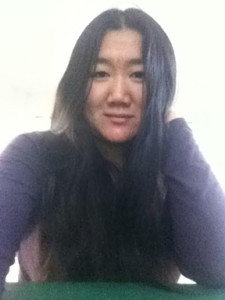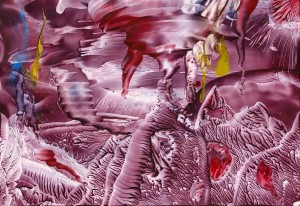Jude Marr: In your poem “Excavation: Mobile, Alabama, 1996” the dichotomies include an exploration of the mortal and the immortal. Can you say more about what you consider to be immortal?
Ting Gou: This is a very interesting question, Jude! I’m not sure I consider anything to be immortal in the sense that it lasts forever, without exception. But I do think that we tell ourselves stories about immortality in order to give meaning to our experiences. It’s these beautiful myths that keep us alive.
Memory is the closest thing to being immortal that I can think of, and I’m not just referring to the memory of someone who has passed away. Memory, by definition, is immortal. The fact that we can remember something means that it continues to exist for us.
Some actions are also immortal, in the sense that we remember them forever. When I was a medical student on the hematology oncology service this past year, I was taking care of a young man who was dying from acute lymphoblastic leukemia. I don’t remember most of the chemotherapy drugs now, but I remember hugging his mom while standing in line in the cafeteria. I also remember hugging the mom of another leukemia patient later that month.
This poem is an ode to memory, I guess. The memory of my mother opening the fish and finding the worms inside. The memory of a house from childhood. But also: memory as a source for imagination. Memory as self-reinvention. Building a future for yourself in the face of terrible things is, in a way, practicing a kind of immortality.
JM: I’m struck, as ever, by your precise use of both language and imagery. As you write, how conscious are you of your life as a scientist?
TG: Thanks, Jude! To be honest, I’m not conscious of being a scientist at all, probably because I’m not currently doing bench research. I’ve done some clinical research in medical school, but working with computer models and Excel spreadsheets is very different from the hands-on pipetting and centrifuging and dissecting I did when I was an undergrad at Princeton. I kind of miss the dynamics of a wet lab.
I’m more conscious now of my other identities when I’m writing: as a medical student, an Asian-American, a southerner (whatever that means), and new Michigander. But I think my background as a molecular biology major does infiltrate my poetry subtly (and sometimes not so subtly). Like many of my poems, “Excavation” contains questions, maybe because I’ve always had a desire to figure out what is really going on. Lately, my poems have been containing more and more questions.
JM: The title, also, is very exact—and yet it seems to beg a question. To what extent does location matter?
TG: This poem is based on an event that actually happened, unless I remembered it incorrectly. Isn’t it interesting and terrifying how we construct our identities out of imperfect memories? But I suppose the way in which our memories are imperfect is also useful. I’m thinking about an archaeological dig where you have to infer what happened based on what you find. You can think of the artifacts as specific aspects of the memory. If you find a lot of clay pots, can’t you infer that the civilization liked to store things in clay pots? Similarly, if you find yourself remembering mostly the horrific aspects of an event, can’t you infer that the event was at least somewhat disturbing?
Sorry, I kind of got off topic. But I think location is important, because it’s often the only thing we know for certain about a memory.
JM: How would you react to being described as a poet of the senses?
TG: “Poetry is one-third imagery, one-third emotion, and one-third intellect.” I think Joseph Millar said that during the workshop we took with him and Dorianne Laux. I think it’s helpful to think of imagery as working in conjunction with everything else. It can be the most important thing in some poems, but some poems don’t need any imagery at all. I think it all depends on what the poem needs.
If being a poet of the senses means that you take in your surroundings as best as you can, then I think every poet is a poet of the senses. You don’t have to include a lot of sensory details in your poems, but you have to be open to perceiving them in your environment.
JM: What do you see as the relationship between dissection and poetry?
TG: In both, you are trying to figure out how something is put together. It could be a body, or it could be your childhood. You are digging under the surface. You are exposing things to light.



Pingback: “Excavation: Mobile, Alabama, 1996” by Ting Gou | Rkvry Quarterly Literary Journal